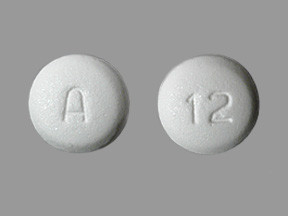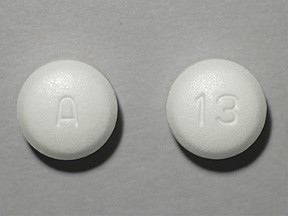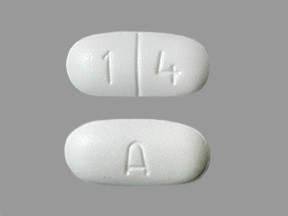METFORMIN - ORAL
PHONETIC PRONUNCIATION: (met-FOR-min)
COMMON BRAND NAME(S): Glucophage
GENERIC NAME(S): metformin HCl

Medically reviewed by Matt Sommers, PharmD. Last updated on September 01, 2023.
Uses
USES: Metformin is used with a proper diet and exercise program and possibly with other medications to control high blood sugar. It is used in patients with type 2 diabetes. Controlling high blood sugar helps prevent kidney damage, blindness, nerve problems, loss of limbs, and sexual function problems. Proper control of diabetes may also lessen your risk of a heart attack or stroke. Metformin works by helping to restore your body's proper response to the insulin you naturally produce. It also decreases the amount of sugar that your liver makes and that your stomach/intestines absorb.
How to use METFORMIN - ORAL
HOW TO USE: Read the Patient Information Leaflet if available from your pharmacist before you start taking metformin and each time you get a refill. If you have any questions, consult your doctor or pharmacist. Take this medication by mouth as directed by your doctor, usually 1-3 times a day with meals. Drink plenty of fluids while taking this medication unless otherwise directed by your doctor. The dosage is based on your medical condition, response to treatment, and other medications you may be taking. Be sure to tell your doctor and pharmacist about all the products you use (including prescription drugs, nonprescription drugs, and herbal products). To reduce your risk of side effects (such as upset stomach), your doctor may direct you to start this medication at a low dose and gradually increase your dose. Follow your doctor's instructions carefully. Take this medication regularly in order to get the most benefit from it. Remember to use it at the same times each day. If you are already taking another diabetes drug (such as chlorpropamide), follow your doctor's directions carefully for stopping/continuing the old drug and starting metformin. Check your blood sugar regularly as directed by your doctor. Keep track of the results, and share them with your doctor. Tell your doctor if your blood sugar measurements are too high or too low. Your dosage/treatment may need to be changed.
Side Effects
Precautions
Interactions
Overdose
Images

- color
- white
- shape
- oblong
- imprint
- IP 220, 10 00

- color
- white
- shape
- oblong
- imprint
- IP 220, 10 00

- color
- white
- shape
- oblong
- imprint
- IP 220, 10 00
Reviews
Faq for METFORMIN - ORAL
Metformin is an oral medication commonly used to control high blood sugar levels in people with type 2 diabetes.
Metformin works by decreasing the amount of glucose produced in the liver and improving the body's response to insulin. It also helps to lower blood sugar levels by increasing the uptake and utilization of glucose by the body's cells.
Metformin is usually prescribed for people with type 2 diabetes, particularly those who are overweight or obese. It may also be used in certain cases of prediabetes.
Common side effects of Metformin include nausea, vomiting, diarrhea, stomach upset, and a metallic taste in the mouth. These side effects typically disappear over time as the body adjusts to the medication.
Metformin alone doesn't usually cause low blood sugar (hypoglycemia). However, if taken in combination with other diabetic medications, such as insulin or sulfonylureas, it may increase the risk of hypoglycemia.
Metformin typically starts lowering blood sugar levels within a few hours of taking the first dose. However, it may take several weeks to achieve optimal blood sugar control.
Metformin is often considered safe to use during pregnancy, particularly for women with gestational diabetes. However, it's important to consult with a healthcare provider to discuss the potential risks and benefits.
Metformin may cause mild weight loss in some individuals, particularly those who are overweight or obese. This can be attributed to its ability to decrease appetite and improve insulin sensitivity.
It's important to follow your healthcare provider's instructions and take Metformin as prescribed. You should also inform your doctor about any other medications, supplements, or medical conditions you have, as they may interact with Metformin.
Warning
WARNING: Rarely, too much metformin can build up in the body and cause a serious (sometimes fatal) condition called lactic acidosis. Lactic acidosis is more likely if you are an older adult, if you have kidney or liver disease, dehydration, heart failure, heavy alcohol use, if you have surgery, if you have X-ray or scanning procedures that use iodinated contrast, or if you are using certain drugs. For some conditions, your doctor may tell you to stop taking this medication for a short time. Ask your doctor or pharmacist for more details. Stop taking this medication and get medical help right away if you have any symptoms of lactic acidosis, such as unusual tiredness, dizziness, severe drowsiness, chills, blue/cold skin, muscle pain, fast/difficult breathing, slow/irregular heartbeat, or stomach pain with nausea/vomiting/diarrhea.
Disclaimer
IMPORTANT: HOW TO USE THIS INFORMATION: This is a summary and does NOT have all possible information about this product. This information does not assure that this product is safe, effective, or appropriate for you. This information is not individual medical advice and does not substitute for the advice of your health care professional. Always ask your health care professional for complete information about this product and your specific health needs.



No Reviews Yet